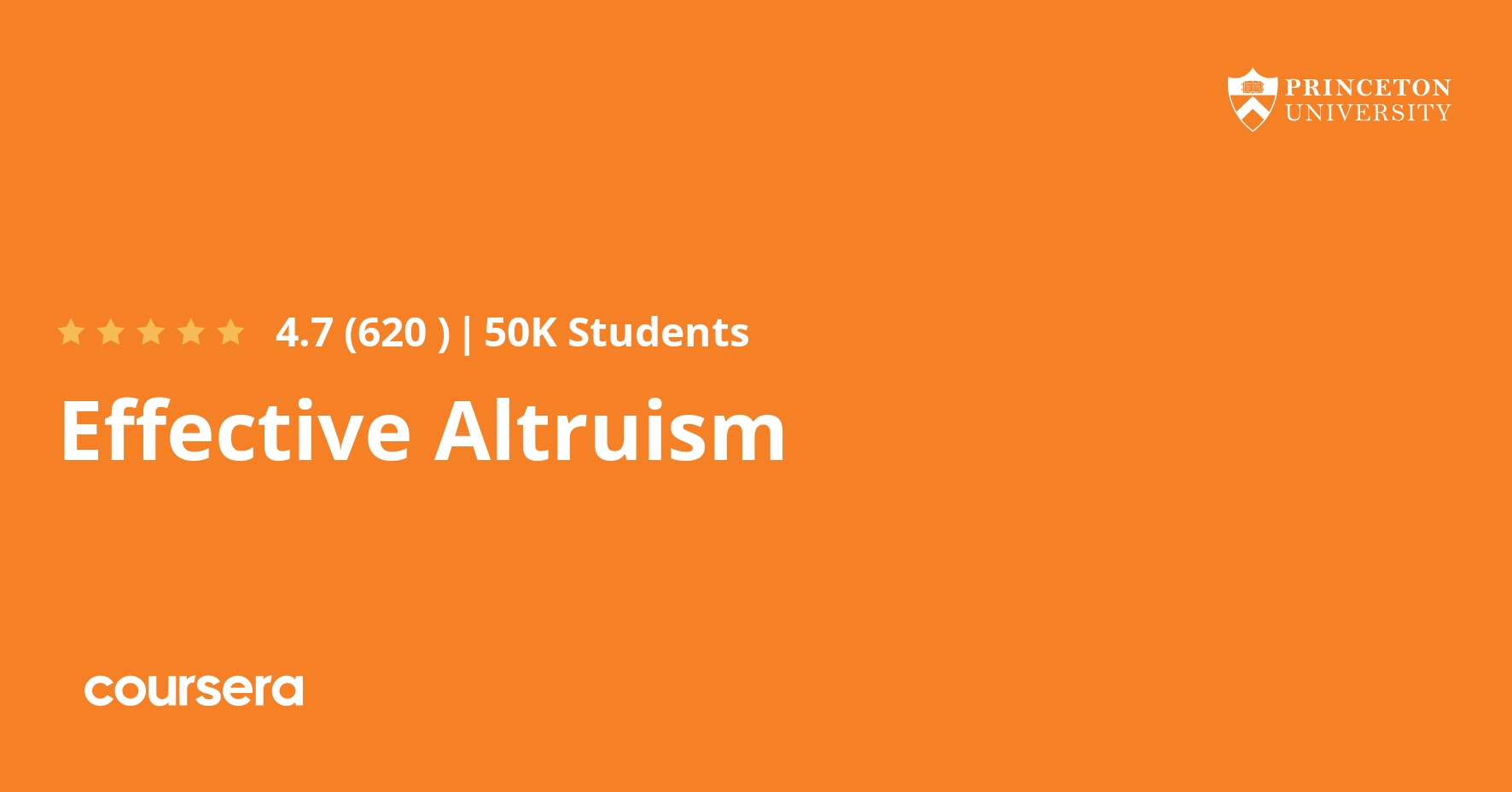Description
Effective altruism is built on the simple but unsettling idea that living a fully ethical life involves doing the most good one can. In this course you will examine this idea’s philosophical underpinnings; meet remarkable people who have restructured their lives in accordance with it; and think about how effective altruism can be put into practice in your own life.
All the features of this course are available for free. It does not offer a certificate upon completion.
What you will learn
Getting Started with the Course
This week we share what this course is about. We will give those of you who do not have a background in philosophy, or who need a refresher, an opportunity to study two areas of ethics: meta-ethics and normative ethical theories.
Poverty and Affluence
What obligations do the affluent have towards those who live in extreme poverty? This week we look at one distinct argument based on consequentialist ethics and also begin the discussion of the effectiveness of aid programs. This week also includes a conversation with Raymond Offenheiser. Furthermore, we discuss poverty as human rights violations. You will also find a conversation with Dean Karlan about effective solutions to poverty problems in this week.
What is the Best Cause? How Much Ought We Do to Help Others?
How do you get the most value for your charitable dollars? How can you compare different causes to each other, and how do you compare different charities to each other? One of the guests this week is Elie Hassenfeld from GiveWell, an organization that tries to find the answers to these questions. This week you will also meet three individuals who in different ways embody the ideal of effective altruism: Zell Kravinsky, Julia Wise and Alexander Berger.
Effective Altruism and Career Choice
This week Will MacAskill and Matt Wage discuss effective altruism and career choice.




